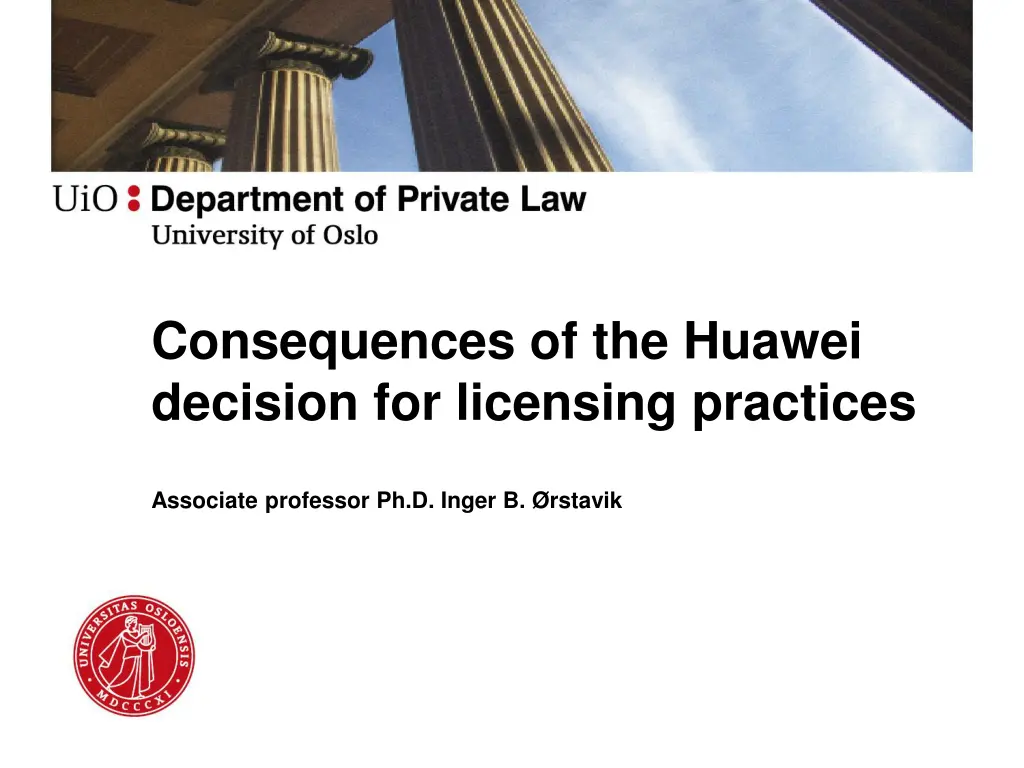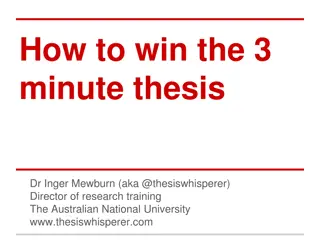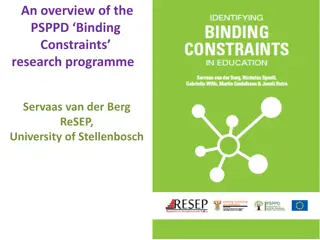
Huawei Decision Impact on Licensing Practices: Legal Perspectives
Explore the consequences of the Huawei decision on licensing practices, focusing on contract law, competition law, and the operationalization of the Huawei test for abuse. The discussion delves into balancing free competition with safeguarding intellectual property rights, the role of FRAND obligations, pre-contractual good faith standards, and operationalizing abuse tests in legal contexts.
Download Presentation

Please find below an Image/Link to download the presentation.
The content on the website is provided AS IS for your information and personal use only. It may not be sold, licensed, or shared on other websites without obtaining consent from the author. If you encounter any issues during the download, it is possible that the publisher has removed the file from their server.
You are allowed to download the files provided on this website for personal or commercial use, subject to the condition that they are used lawfully. All files are the property of their respective owners.
The content on the website is provided AS IS for your information and personal use only. It may not be sold, licensed, or shared on other websites without obtaining consent from the author.
E N D
Presentation Transcript
Consequences of the Huawei decision for licensing practices Associate professor Ph.D. Inger B. rstavik
Contract law as a tool to operationalize Huawei? ECJ (42): The application of art 102 must aim at striking a fair balance between free competition (art 102) and safeguard IPRs and the right to effective judicial protection The threat of injunction is decisive for the bargaining power of the patent holder vs potential licensees The concept of abuse is objective: Has the dominant undertaking used business methods that are different from those governing normal competition and thereby distorted competition? The abuse test in Huawei resembles a pre-contractual good faith standard
Parallell legal regimes Competition law: Art. 102 Exceptional circumstances SEP in standard set by a SSO The FRAND obligation creates legitimate expectations (53) Pre-contractual good faith Two-party relationship legitimate expectations Good faith standard Cease and desist Negotiations must be real, with the intention to reach agreement (PECL art. 2:301(3)) Withdrawal from negotiations (PECL art. 2:301(2)) The abuse test Letter to alert of infringement Specific, written offer for a FRAND license (to the willing licensee) Licensee must diligently respond (in writing) with no delaying tactics
Important conseptual differences Competition law: Art. 102 Objective: prevent business methods restricting competition Pre-contractual good faith Objective: Protection of legitimate expectations Uniform application in EU/EEA Differences in national law Sanctions: can dismiss the infringement injunction as unlawful Fines, damages Uncertain whether injunction can be dismissed Paris Appeal Court, 29.11.13, Ericsson vs. TCT Mobile, 3G District Court of Hague, 14.03.12, Samsung vs. Apple, 3G Contract invalidity, damages
The operationalized Huawei-test for abuse Developing a formalistic test of contract terms is in line with former ECJ case law regarding other forms of abuse. C-385/07, Der Gr ne Punkt, C-52/07, STIM The test criteria can be operationalized if seen in their legal context, i.e. contract law and pre-contractual good faith. The competition law approach ensures a EU/EEA uniform standard. The competition law approach is probably necessary to balance the bargaining power caused by the threat of injunction.











